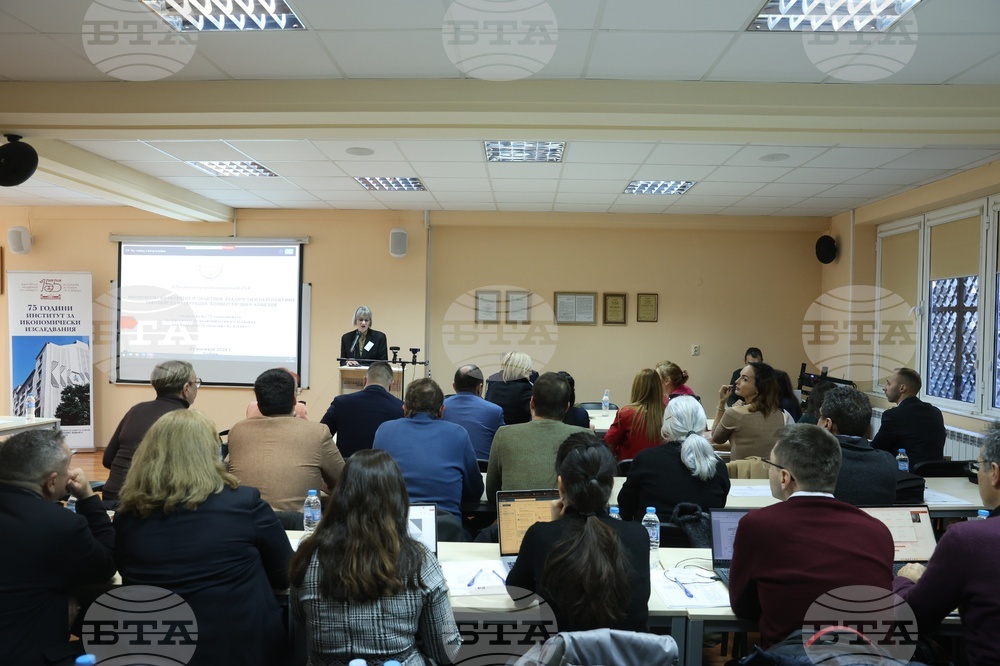site.btaAfter 17 Years of EU Membership, Bulgarians' Expectations Have Not Been Met - University Lecturer


After 17 years of European Union membership, the expectations of Bulgarians have not been met, Tsvetomir Tsvetkov, Assistant Professor at Sofia University, said here on Monday. He presented a report titled "Social and Economic Impact of Bulgaria’s EU Membership" during a scientific conference on "Economic Development and Policies: Reality and Prospects. European Integration, Convergence and Cohesion", marking the 75th anniversary of the Economic Research Institute at the Bulgarian Academy of Sciences.
In Tsvetkov’s words, Bulgaria’s accession to the EU was loaded with expectations for improvements in living standards, gross domestic product (GDP) growth, reduced income inequality, and curbing corruption. However, the realities of this country’s EU membership did not live up to these expectations, he said.
Bulgaria's economic growth averaged 5.7% annually from 2000 to 2006, before joining the EU. After the country’s accession in 2007, growth slowed to 2.39%, Tsvetkov added. He attributed this to the terms of the accession treaties, which required Bulgaria to close units at the Kozloduy nuclear power plant and stop subsidies to the agricultural sector, which, he added, leads to a crisis in that sector.
Tsvetkov highlighted growing inequalities in Bulgaria, which is contributing to an increasing risk of poverty.
He pointed out that the decline in GDP, rising inequalities, and the growing poverty risk are setting negative demographic trends, leading to a shrinking population. This demographic shift is not only affecting the age structure but also the ethnic composition, he added. The hopes of Bulgarians were also tied to an increase in foreign direct investment. However, while it slightly grew in 2007-2008, the trend has since declined, failing to have a positive impact on GDP.
Another major expectation was the influx of EU funds. Although EU funding did increase after Bulgaria's entry, it later transpired that only about 30-40% of the allocated resources were utilized across various programmes, Tsvetkov noted.
Addressing the conference, Chief Assist. Prof. Daniel Kasabov said that external factors are crucial in driving inflation in Bulgaria. Presenting his report on "Inflation Dynamics in Bulgaria: The Role of Global and Domestic Factors," he noted that food and energy products play a key role in inflation due to their weight in the consumer basket. Kasabov added that the prices of manufactured goods, which are mainly imported, have made a substantial positive contribution to rising inflation, with price increases being largely driven by external factors.
/RY/
news.modal.header
news.modal.text